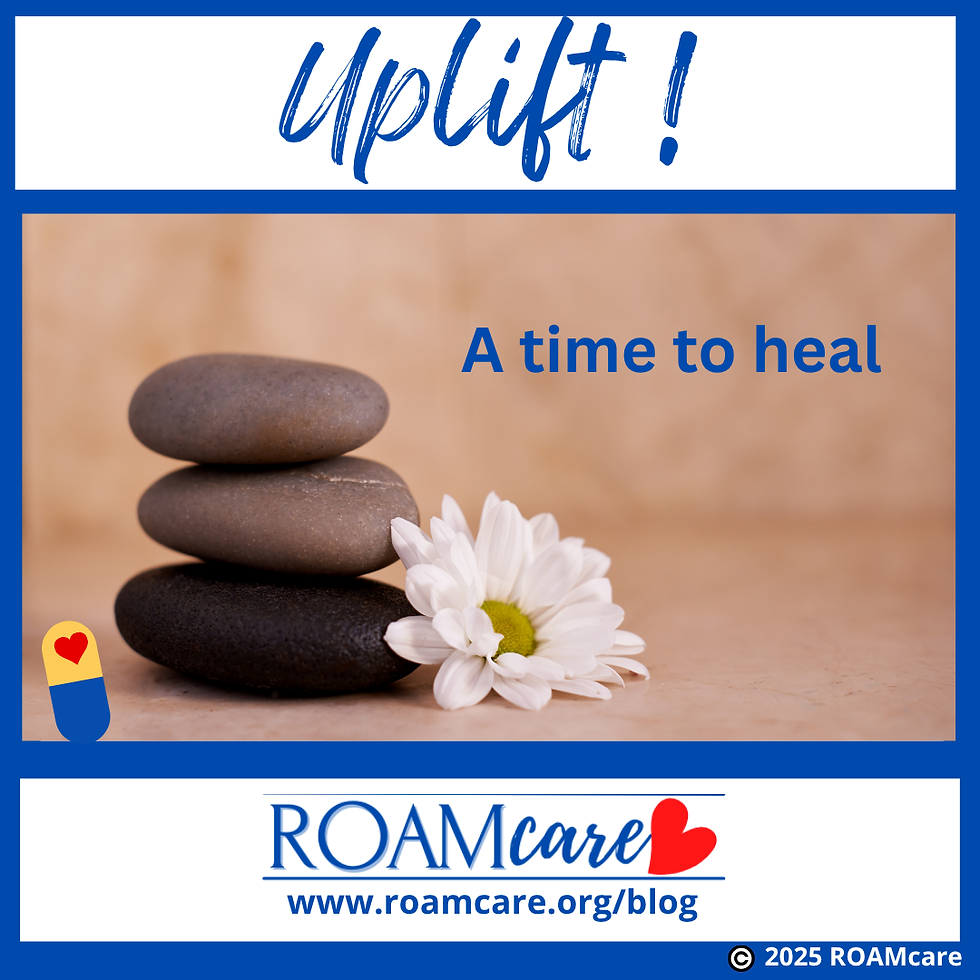Unburden Yourself
- roamcare
- Sep 17, 2025
- 3 min read
We are certain if we asked anyone, including ourselves, what ‘burden’ means, we would think or hear, an emotional challenge like the burden of caring for an ailing family member. Probably nobody would say it’s the capacity of a cargo ship. (Really, it is.)
In fairness, every dictionary we consulted lists “a heavy load” as their number one definition. But they all have some variance of that emotional challenge in the number two spot. We don‘t think that’s fair. They may be valid, universally accepted definitions, but caring for an individual, any individual, or your personal thoughts of how you are looked at by others (the number three definition is fearing you are a nuisance to others), or a challenging commitment (“such as marriage” is one dictionary’s example) should not constitute a heavy load.
When you enter a committed relationship (think marriage), or decide to care for a sick child, elderly adults, or close friend, you are doing so out of love. You are doing the opposite of burdening yourself or your caring partner. You are lightening the load.
When we think of burden, we think of something unpleasant, something too difficult for a human to do so we rely on beasts of burden to come to our aid. Being a loving human being, generous with compassion and care, offering time and patience, is not an unpleasant experience. And indeed, the caregiving individual in a caring situation often benefits as much as the cared for person,
In a 2013 patient education article, the Bacon Rouge Clinic, a part of the Mayo Clinic Network, listed seven reasons people benefit from caring for others, four of them physical responses. You produce oxytocin, responsible for increasing optimism and lowering blood pressure. You produce serotonin which is the brain’s chemical to regulate happiness. Helping others has been shown to increase your energy level. And studies have proven that older individuals who volunteer are 47% less likely to die than those who do not – all other things considered. The article went on to say that those who care for others also have a greater sense of purpose, less stress, and a better perspective on life.
A clinical studied performed by Carnegie Mellon University researchers published in the American Psychological Society’s journal “Psychology and Aging,” reveals that helping others lowers one’s hypertension (high blood pressure) risk. They studied 1,164 adults over four years. All had normal blood pressure levels at their first interview. Those who reported at least 200 hours of volunteer work during that initial interview were 40 percent less likely to develop hypertension than those who did not volunteer when evaluated four years later. They went on to say, “The specific type of volunteer activity was not a factor - only the amount of time spent volunteering led to increased protection from hypertension.”
There is also a profound sense of satisfaction in caring for others, especially loved ones. Everyone has the desire to feel that they are needed, and caregiving allows the caregiver to know and to see they made a difference in people’s lives.
We could be wrong, but doing something that makes you happy, lowers your blood pressure, lowers stress, and makes a difference in other people’s lives all while increasing your own chance of survival doesn’t seem like a “heavy load” to us. It seems just the opposite. You might say an unburdening even.





Comments